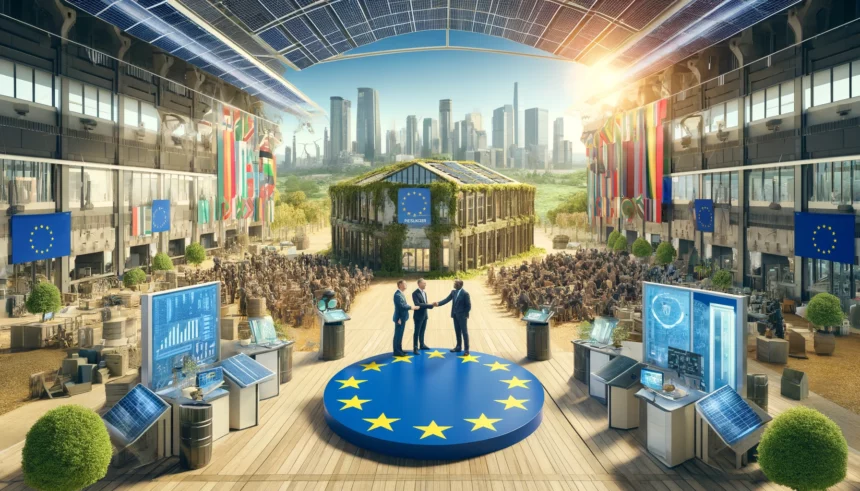In a significant push towards sustainable development, the European Union (EU) recently announced the launch of two major initiatives aimed at promoting circular economic practices worldwide. These initiatives were unveiled by the European Commissioner for International Partnerships, Jutta Urpilainen, at the World Circular Economy Forum 2024. Let’s dive into what these programs entail and how they aim to reshape our approach to economic sustainability.
A Fresh Look at Resource Management: The EU Circular Economy Resource Centre
The newly established EU Circular Economy Resource Centre is part of the broader Global Gateway strategy, a plan devised to strengthen the resilience and sustainability of societies globally. With a robust funding of €15 million from the European Commission, the Resource Centre aims to enhance collaboration and knowledge exchange between the EU and countries across various regions including Asia, Africa, and Latin America. Here’s what the Resource Centre plans to offer:
- Circular Economy Knowledge Lab: This lab will document and share the EU’s circular economy expertise. It will serve as a knowledge hub offering support and information through a dedicated platform and helpdesk.
- Circular Economy Policy Lab: Providing technical assistance and sharing best practices, this lab aims to inspire policy reforms and regulatory improvements.
- Circular Economy Business Lab: Targeted at businesses, this lab will facilitate market outlooks, benchmarking assessments, and promote innovative circular solutions, with a focus on empowering women and youth entrepreneurs.
The initiative will be implemented with the support of international partners such as the Finnish Ministry for Foreign Affairs, the Finnish Innovation Fund Sitra, and the Belgian Development Agency ENABEL, and is set to roll out before the end of 2024.
Empowering Africa’s Green Transition: SWITCH to Circular Economy in East and Southern Africa
In addition to the Resource Centre, Commissioner Urpilainen introduced the “SWITCH to Circular Economy in East and Southern Africa” programme, an ambitious plan supported by a €40 million investment over five years. This program will focus on:
- Strengthening the Policy and Business Environment: It will provide essential policy support and create a conducive business ecosystem for circular practices.
- Capacity Building: Through training and human development, the programme aims to enhance the skills needed for sustainable business practices.
- Enhanced Access to Finance: A matching grant facility will support young startups and SMEs, encouraging investments and joint ventures between African and European companies.
This initiative, launched in collaboration with the Common Market for Eastern and Southern Africa (COMESA), is designed to mitigate climate impacts by fostering green and circular business models in critical sectors like packaging, plastics, electronics, and e-waste.
Broadening Horizons
Funded under the EU’s Neighbourhood, Development, and International Cooperation Instrument (NDICI) – Global Europe Programme, these initiatives are pivotal components of the EU’s efforts to promote circular economy practices globally. The EU has already committed approximately €1.6 billion to support the circular economy from 2021 to 2023, benefiting over 100 countries.
These efforts are aligned with the Circular Economy Action Plan (CEAP), which is crucial to achieving the goals set out in the European Green Deal, aiming to reduce consumption footprints and double Europe’s circular material use rate over the next decade.
Looking Ahead
As Commissioner Urpilainen highlighted, while the future is uncertain, efforts like these are crucial steps in influencing it positively. Through these pioneering initiatives, the EU continues to lead by example, championing a shift towards a circular, sustainable, and resilient global economy. By sharing resources, expertise, and innovation, these programs not only aim to improve life in partner countries but also pave the way for a sustainable future for generations to come.
















